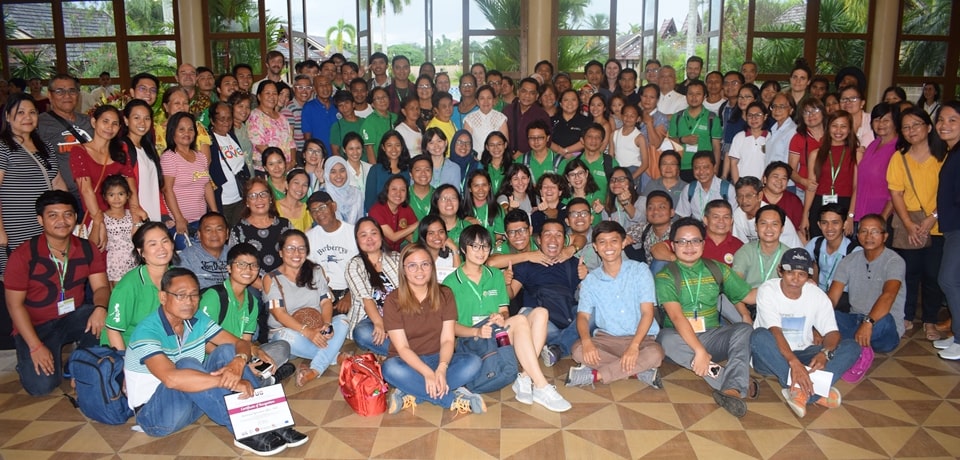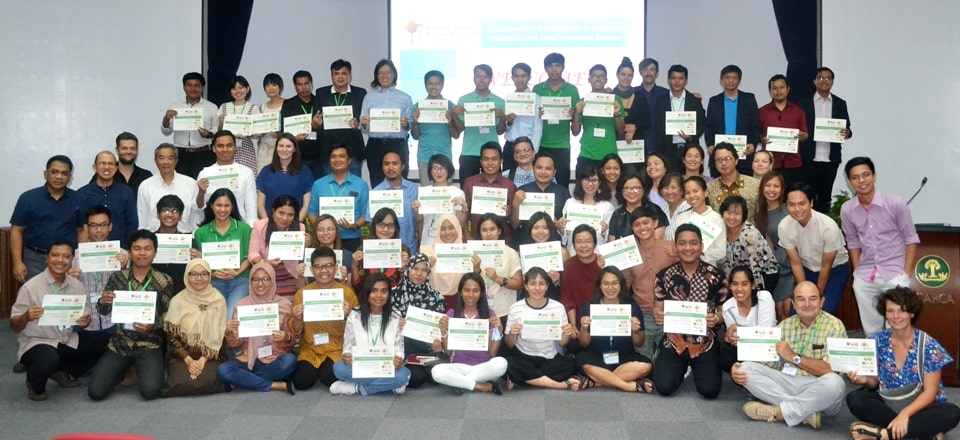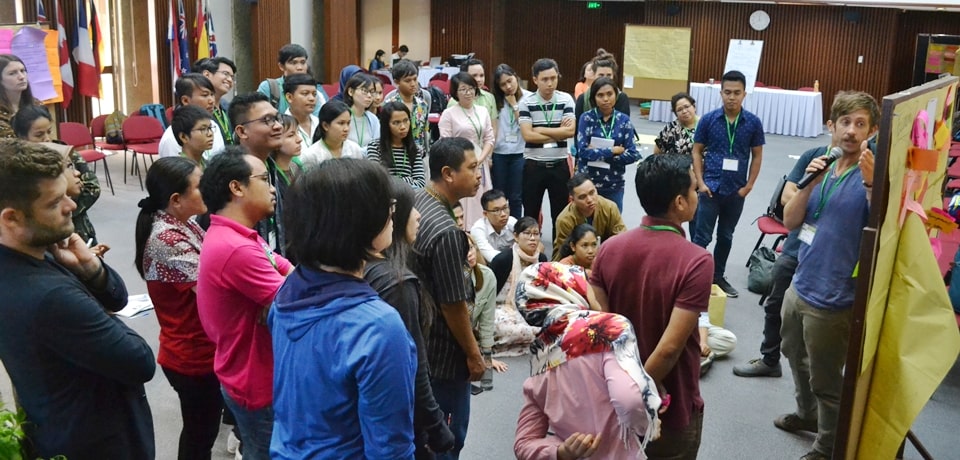
SEARCA, in collaboration with the University of the Philippines Los Baños (UPLB), has successfully concluded the 2019 UC-MSFSCC Summer School and Training of Trainers (ToT).
Forty-four (44) students from 15 universities under the Southeast Asian University Consortium for Graduate Education in Agriculture and Natural Resources (UC) and from partner universities under the Master of Science in Food Security and Climate Change (MSFSCC) project successfully completed the Summer School. This year's offering with theme "Sustainable and Resilient Food Systems in Vulnerable Areas" was held in the Philippines last 15 – 31 July 2019 and was jointly organized by UPLB, the University of Natural Resources and Life Sciences, Vienna (BOKU), Universitas Gadjah Mada (UGM) and SEARCA.
SEARCA hosted the first leg of the Summer School where short lectures, group discussions and interactive exercises were conducted as preparation for the students' field work. The students looked at the impacts and challenges of the changing climate and globalization to food security and the sustainability of small farms in Southeast Asia. They considered the ecological and socio-economic dimensions of typical agro-food systems in the region and the possible indicators to assess the sustainability state of these dimensions. The students were divided into eight (8) groups and were deployed to different field sites in Camarines Sur, one of the most vulnerable areas to climate change but also one with a robust and pro-active disaster risk reduction management (DRRM) programs in the Philippines. Students were briefed by local officials on the risk profile and the status of the DRRM programs in Camarines Sur, with special focus on the rice and cacao farming systems. The students also conducted surveys and multi-sectoral focus group discussions with farmer leaders, input providers, traders, processors, barangay nutritionists, and market retailers. They also did a 2-nights homestay with farmer families that served as subjects of their case studies. Data gathered was then processed and analyzed and results of the studies were presented in a public conference held on 28 July 2019 with local officials, farmer families and other stakeholders in attendance.
During the closing program held at the SEARCA headquarters, Dr. Poonpipope Kasemsap of Kasetsart University (KU) of Thailand and MSFSCC Project Leader, expressed confidence that all the Summer School participants would become successful individuals in the future. However, he asked them to work to uplift the plight of farmers. For her part, Dr. Maria Cristeta Cuaresma, SEARCA Program Head for Graduate Education and Institutional Development, mentioned that she was touched when she saw how the students warmly welcomed and hugged the farmer families who came for the public conference, and commented on how they may have touched each others' lives during the course of the field work. She then exhorted the students who would be going back to their different home countries to go and continue touching people's lives.

The Summer School is an annual event of the UC that started in 2015 and is hosted by the UC members on rotation basis. It has now evolved to become a 2-unit credit core course in the MSFSCC program. On the other hand, the ToT, which was held simultaneously with the Summer School, discussed how to plan and implement this MSFSCC core course, including technical and administrative challenges for such a transdisciplinary action-learning field course. It considered both the content and pedagogy related to the course, as well as issues on budgeting, programming, student assessment and reporting. The ToT was led by experts from Montpellier SupAgro (MSA) and KU. Twenty-five (25) faculty members and staff from UC and MSFSCC partners, including 19 from overseas institutions, served as Summer School organizers and ToT participants. Another set of 23 faculty members from UPLB and a staff from FAO served as resource persons and group facilitators.
The UC was founded in 1989 and consists of UPLB, UGM, KU, Institut Pertanian Bogor (IPB), and Universiti Putra Malaysia (UPM) as regular members with Tokyo University of Agriculture (NODAI), National Taiwan University (NTU), Universitas Brawijaya (UB), University of British Columbia (UBC), and Gottingen University (UG) as associate and affiliate members. SEARCA serves as Secretariat of the Consortium.
The MSFSCC project is partly funded by ERASMUS+ under its Capacity Building for Higher Education component. The project is led by KU with the other regular members of the UC, Central Luzon State University (CLSU), Prince of Songkla University (PSU), Chiang Mai University (CMU), Nilai University, Royal University of Agriculture (RUA) and University of Battambang (UBB) as university partners in the region, and with BOKU, MSA and UG as university partners in Europe. SEARCA, Agrinatura and Agreenium are network partners of the project.
